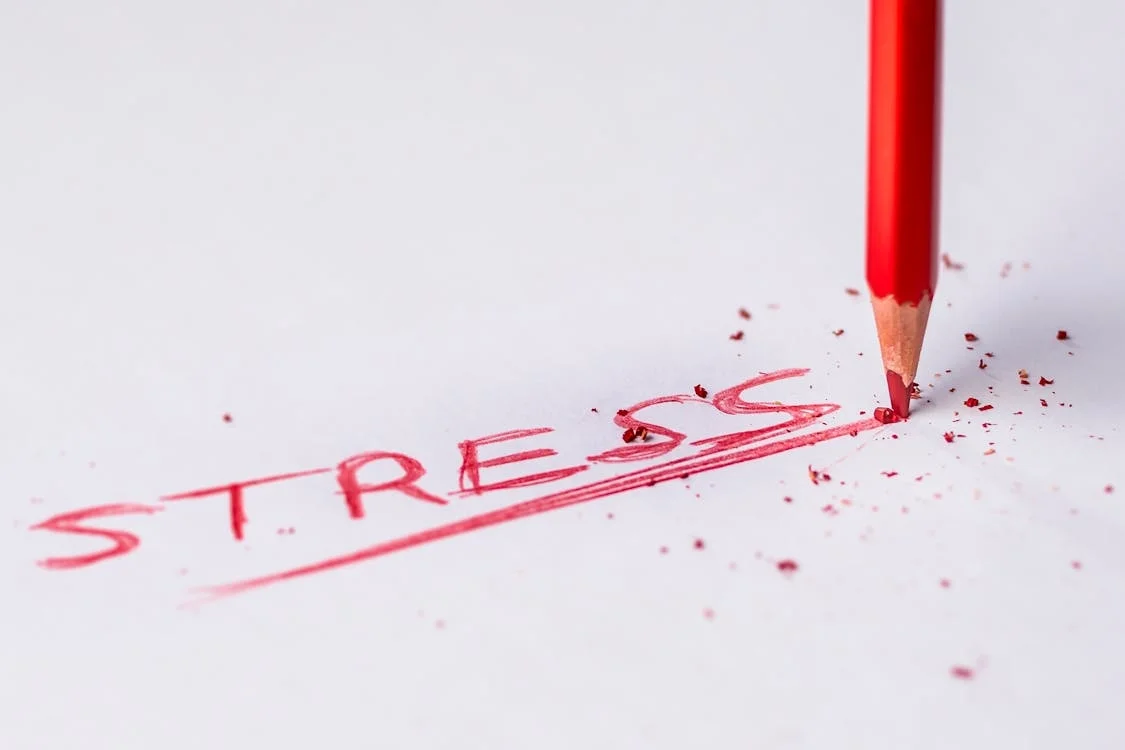10 Best Tips for Stress Relief

In today’s fast-paced world, stress has become an inevitable part of our lives. Whether it’s work deadlines, family responsibilities, or personal challenges, stress can take a toll on our physical and mental health. However, by understanding stress and implementing effective coping strategies, we can learn to manage it effectively and live a more fulfilling life.
Understanding Stress

Stress is a natural response to pressure or demands. While a certain amount of stress can be motivating, excessive stress can lead to anxiety, depression, and various health problems. Recognizing the signs of stress is the first step towards managing it. Common symptoms of stress include:
• Physical symptoms: Fatigue, headaches, muscle tension, digestive issues.
• Emotional symptoms: Anxiety, irritability, mood swings, depression.
• Cognitive symptoms: Difficulty concentrating, forgetfulness, indecisiveness.
Effective Stress Management Techniques
1. Prioritize and Organize

Create a to-do list and prioritize tasks based on importance and urgency. Breaking down large tasks into smaller, manageable steps can help reduce feelings of overwhelm.
Tips for Organizing Your Space:
• Start small: Don’t try to tackle everything at once. Start with one area at a time and gradually work your way through your entire space.
• Declutter: Get rid of anything you no longer need or use. Donate items to charity or throw them away.
• Create designated spaces: Assign specific areas for different items. This will help you keep things organized and prevent clutter from building up again.
• Label everything: Label shelves, drawers, and boxes to help you stay organized.
• Maintain your progress: Once you’ve organized your space, make an effort to maintain it. Put things back in their designated places after using them.
2. Practice Time Management

Learn to manage your time effectively by setting realistic deadlines and avoiding procrastination. Time management techniques like the Pomodoro Technique can help you stay focused and productive.
Here’s how time management can help:
• Reduces Overwhelm: Effective time management can help you break down large tasks into smaller, more manageable ones. This can prevent you from feeling overwhelmed and reduce stress.
• Increases Productivity: When you’re organized and focused, you’re more likely to be productive. This can help you accomplish your goals and reduce stress.
• Improves Work-Life Balance: Time management can help you establish a healthy work-life balance. By setting boundaries and prioritizing your tasks, you can avoid burnout and reduce stress.
3. Exercise Regularly

Physical activity is a powerful stress reliever. Engaging in regular exercise releases endorphins, which have moodboosting effects. Find an activity you enjoy, whether it’s walking, running, dancing, or yoga.
Exercise can help reduce stress in several ways:
1. Releases Endorphins: Endorphins are natural mood-boosters that can help reduce stress and anxiety. When you exercise, your body releases endorphins, which can leave you feeling happier and more relaxed.
2. Improves Sleep: Exercise can help you sleep better, which is essential for managing stress. When you’re well-rested, you’re better equipped to handle stress and challenges.
3. Reduces Anxiety: Regular exercise can help reduce symptoms of anxiety, such as racing thoughts and excessive worry.
4. Boosts Confidence: Exercise can help you feel more confident and in control. This can help you cope with stress more effectively.
4. Healthy Eating

A balanced diet provides the nutrients your body needs to function optimally and cope with stress. Avoid excessive caffeine and alcohol, which can exacerbate stress.
Tips for a Stress-Reducing Diet
1. Eat a Balanced Diet: Focus on fruits, vegetables, whole grains, lean proteins, and healthy fats.
2. Limit Processed Foods: Avoid processed foods that are high in unhealthy fats, sugar, and sodium.
3. Stay Hydrated: Drink plenty of water throughout the day to stay hydrated and support optimal brain function.
4. Mindful Eating: Practice mindful eating by paying attention to your body’s hunger and fullness cues.
5. Limit Caffeine and Alcohol: Excessive caffeine and alcohol can contribute to stress and anxiety.
5. Get Enough Sleep

Adequate sleep is crucial for overall health and well-being. Aim for 7-9 hours of quality sleep each night.
Tips for Improving Sleep:
• Create a Sleep-Conducive Environment: Ensure your bedroom is dark, quiet, and cool.
• Establish a Consistent Sleep Schedule: Try to go to bed and wake up at the same time each day, even on weekends.
• Limit Screen Time Before Bed: The blue light emitted by electronic devices can interfere with sleep.
• Avoid Heavy Meals Before Bed: Eating a heavy meal close to bedtime can disrupt sleep.
Relaxation Techniques

Incorporate relaxation techniques into your daily routine. Deep breathing exercises, meditation, and mindfulness can help calm your mind and reduce stress.
Mindfulness and Meditation:
• Mindful Breathing: Focus on your breath, noticing the sensation of the air entering and leaving your body.
• Guided Meditation: Listen to a guided meditation or create your own.
• Body Scan Meditation: Gradually focus your attention on different parts of your body, releasing any tension.
Deep Breathing Techniques:
• Diaphragmatic Breathing: Place one hand on your chest and the other on your stomach. As you inhale, your stomach should rise, while your chest should remain relatively still.Exhale slowly, allowing your stomach to deflate.
• 4-7-8 Breathing: Inhale for 4 counts, hold for 7 counts, and exhale for 8 counts. Repeat several times.
7. Social Support

Social support plays a crucial role in stress management. Having strong relationships with friends, family, and loved ones can significantly reduce the negative impacts of stress. Here’s how social support can help:
Emotional Support
• Empathy and Understanding: Friends and family can offer empathy and understanding, validating your feelings and making you feel less alone.
• Perspective: They can provide a different perspective on stressful situations, helping you see things from a new angle.
Practical Support
• Assistance: Loved ones can offer practical assistance, such as helping with chores or errands, which can alleviate some of your stress.
• Advice: They can provide advice or suggestions based on their own experiences, offering valuable insights.
Sense of Belonging
• Community: Strong social connections provide a sense of belonging and purpose, which can be a powerful antidote to stress.
• Shared Experiences: Sharing experiences with others can
help you feel less isolated and understand that you’re not
alone.
How to Build Strong Social Connections
• Spend Quality Time: Make time for meaningful interactions with loved ones.
• Join Social Groups: Participate in activities or clubs that align with your interests.
• Volunteer: Giving back to your community can be a rewarding way to connect with others.
• Online Communities: Connect with like-minded individuals through online forums or social media groups.
8. Hobbies and Interests

Engage in activities you enjoy as a way to unwind and de-stress. Hobbies can be a great outlet for creativity and self-expression. Here’s how hobbies and interests can help:
• Distraction: Hobbies and interests offer a mental distraction from stressful thoughts and worries. They allow you to focus on something else and take a break from the demands of everyday life.
• Relaxation: Engaging in activities you enjoy can promote relaxation and reduce stress levels. When you’re immersed in something you love, you’re less likely to feel overwhelmed or anxious.
• Sense of Accomplishment: Achieving goals in your hobbies can boost your self-esteem and provide a sense of accomplishment. This can help reduce stress and improve your overall well-being.
9. Set Realistic Expectations

Avoid perfectionism and set realistic goals for yourself. Remember that it’s okay to make mistakes and that you don’t have to be perfect all the time.
• Be Specific: Instead of vague goals like “be more organized,” set specific goals like “clean my desk every day.”
• Break Down Goals: Divide large goals into smaller, more manageable steps.
• Consider Your Resources: Be realistic about the time, resources, and skills you have available.
• Be Flexible: Be prepared to adjust your expectations if circumstances change.
• Celebrate Small Wins: Acknowledge and celebrate your progress, even if it’s small.
10. Seek Professional Help

If stress is significantly impacting your life, don’t hesitate to seek help from a mental health professional. Therapy can provide valuable tools and strategies for managing stress.
Here’s how seeking professional help can reduce stress:
• Personalized Guidance: A therapist can provide personalized guidance and support tailored to your specific needs and challenges.
• Effective Coping Mechanisms: Therapists can teach you effective coping mechanisms to manage stress, such as relaxation techniques, cognitive-behavioral therapy (CBT), and mindfulness.
• Uncovering Underlying Causes: A therapist can help you identify and address the underlying causes of your stress, such as unresolved emotional issues or difficult life circumstances.
• Building Resilience: Therapists can help you develop resilience, which is the ability to bounce back from setbacks and challenges.
• Improving Relationships: Stress can negatively impact your relationships. A therapist can help you improve your communication skills and build stronger relationships.
Additional Tips for Managing Stress

Mindfulness and Meditation: Practice mindfulness to focus on the present moment and reduce stress. Meditation can help calm your mind and improve your overall well-being.
• Time in Nature: Spending time in nature has been shown to reduce stress and improve mood. Go for a walk in the park, hike in the mountains, or simply sit outside and enjoy the fresh air.
• Laughter: Laughter is a powerful stress reliever. Watch a funny movie, spend time with friends who make you laugh, or listen to a comedy podcast.
• Limit Screen Time: Excessive screen time can contribute to stress and anxiety. Set limits on your screen time and make sure to take breaks throughout the day.
• Journaling: Writing in a journal can help you process your thoughts and emotions, reducing stress and anxiety.
Remember, stress management is a journey, not a destination. It takes time and effort to develop healthy coping mechanisms. Be patient with yourself andcelebrate your progress along the way




